You have to give credit to Sir Kenneth Branagh as a filmmaker who rarely shies away from potentially popular material that could put him within the crosshairs of dedicated fans.
Besides directing three Shakespeare adaptations, Branagh famously helped kick-off the Thor leg of the MCU with that 2011 movie. Then he directed an adaptation of Disney’s beloved animated film Cinderella, before becoming one of many filmmakers to tackle Tom Clancy with Jack Ryan: Shadow Recruit. He also did double duties for his remake of Agatha Christie’s Murder on the Orient Express by directing and acting in the film as Christie’s beloved detective, Inspector Poirot.
And now, Branagh is back to Shakespeare, this time playing the British bard in All is True, a film that looks at the playwright’s return to Stratford after 20 years of being the talk of the London theater community, following a fire that claimed the Globe Theater in 1613. Playing Shakespeare’s older wife Anne Hathaway – yes, that was her real name – is Dame Judi Dench, with Sir Ian McKellen playing his good friend Henry, and Kathryn Wilder and Lydia Wilson as his two grown-up daughters.
If you’ve been a fan of Shakespeare’s works, then All Is True is an interesting blend of historical fact with theories about what his last days in Stratford might have been like. The movie is written by Ben Elton, best known for writing some of England’s most revered ‘80s comedies, including The Young Ones and Blackadder. Not that All Is True is nearly as edgy or funny, though of course, it isn’t meant to be.
The Beat spoke with Branagh earlier in the week, mostly talking about All is True, but also talking about his adaptation of Eoin Colfer’s Artemis Fowl, which less than 24 hours later was delayed until 2020.
THE BEAT: Let’s start with how this came about. You’ve known Ben Elton for some time, since he appeared in your adaptation of Much Ado About Nothing, which I believe was the only movie he’s appeared in?
Kenneth Branagh: Yeah, I believe that’s true… as an actor. He’s directed a couple. We’ve talked for years and years and years about doing something. More and more I was attracted to Ben, who I think is a brilliant comic writer, doing something that I also knew he was capable of, which is something dramatic. He worked on a brilliant sitcom, Upstart Crow, for the last three years, so he was very well versed in Shakespeare’s plays, Shakespeare’s life, but happy to be away from comedy and considering it.
I rang him, and pitched him this idea and said “Look what about Shakespeare at the end of his life when he goes back to Stratford? What do you think?” The idea caught his imagination, and I said, “You just can’t write any jokes. It’ll be funny, it will be warm, we can’t help it, but don’t worry about making it funny. Let’s just really try to do a chamber piece about Shakespeare coming out of that 20-year ascension of the creative pinnacle in London in the 1590s into the 1600s. Let’s work out what happened when he came home, and let’s start with what exists in the public record of his.” When he got back to me, he said, “My god, there’s much more than you think, isn’t there?” That’s where we started.
THE BEAT: I spoke to Mike Leigh a few weeks ago for his movie Peterloo, and I asked him about research. His response was, “Oh, it was only 200 years ago, so we have all the records still.” Record-keeping in England must be amazing if you can still find stuff to work from for a movie set in the 17th century.
Branagh: The key was the churches. Obviously, the churches were the places. The parish register at Stratford Holy Trinity had been there from 1200. Then there was the grammar school. I mean, they’re inconsistent, but you can definitely view the record that tells us that John Lane stood up in church and said that Susanna Shakespeare was a whore, and that she had gonorrhea. You can find out that Thomas Quiney was sentenced to three successive Sundays of parading around Stratford in his night shirt for committing sin with Margaret Wheeler out of wedlock. It’s inconsistent. We also find Shakespeare’s involvement in a law case in London, more like 1608, where he gave evidence on behalf of a couple who were suing the father-in-law for nonpayment of a dowry. All of it cheeky and illusive, but in a way a great invitation to a dramatist and other dramatists to just say, “Here are the facts we know. Let’s expand, and let the fiction come out of the work that he wrote.” Which was often concerned with twins, problems with daughters, and the loss of a child.
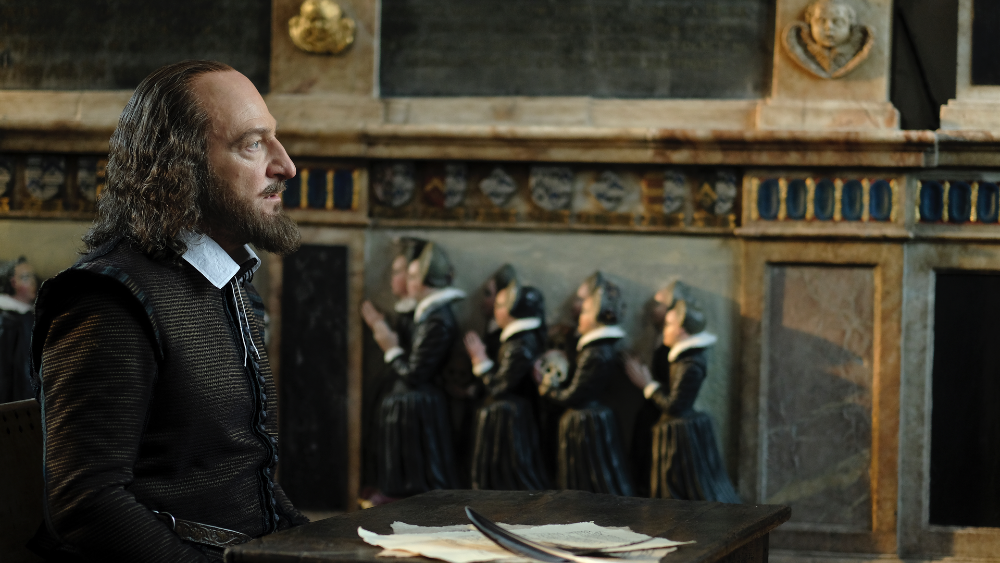
THE BEAT: How much time did it take for Ben to come up with the screenplay and do all the research after he decided to pursue it?
Branagh: He was so well-researched up that we talked — I guess it was in January — and by probably the end of July, we had a first draft that we could really work like crazy.
THE BEAT: You’ve been very busy as a director, as you’re becoming one of those “movie a year” filmmakers, even though some have been moved around the schedule. Is it hard developing something smaller like this while dealing with big studio tentpoles?
Branagh: Yes and no. I mean [it can be] hard practically sometimes, but creatively tremendously helpful. I mean you can be very fleet of foot with this kind of thing. If you are at a stage where you now have the experience to know how to make one of these movies swiftly. I’ve always found that the difference in scale, the difference in subject matter, to be fantastically refreshing and complimentary. That’s what I’ve always found. I’ve always found that since my earliest career, and it isn’t to do with the sizes of movie, just literally the yin and the yang of the work that we do, it’s important to me to touch base with [that].
THE BEAT: I haven’t spoken to him in a while but I remember Joss Whedon did his Shakespeare movie in between his Avengers films, which sounds similar to what you’re saying.
Branagh: Yes! It’s like the decompression thing [that] I can well understand. Joss shot his Much Ado About Nothing in 11 days, which is at least as much time [as] the editors would need to get the first assembly of the big picture ready, probably rather more time than that. I absolutely understand the desire to move with the speed, that through all the resources and ambition of the bigger movies, sometimes isn’t possible with those large, logistically-bound machines.
THE BEAT: I’m going to admit something embarrassing here. I went into All Is True knowing you directed it, knowing that it had something to do with Shakespeare and that you had Dame Judi Dench and Sir Ian McKellen in it. I only realized about halfway through watching it that you were playing Shakespeare. It was quite jarring since you have a specific look and the hair and make-up just made you unrecognizable.
Branagh: Well, I’m super pleased to hear that. We try to get rid of me — leave my eyes and let them be like the eyes, if at all possible, in the Chandos portrait of William Shakespeare that is in the National Portrait Gallery. “NPG1” it’s called, because it was the very first acquisition of the National Portrait Gallery in 1847. You can imagine, “British icon, let’s have him, he’s number one.” That’s the portrait that they believe Shakespeare may have sat for. That’s who we tried to be — the man on all the tea towels, the man on all the key rings. Then see if we could find from the inside a human being who was sort of subverting that. If you thought [he] was some sort of rather pompous, big wing-collared man from a sketch, he could be somebody, as I find with the plays, that comes leaping off the page as a living, breathing human being who surprises the heck out of you by their very familiarity.
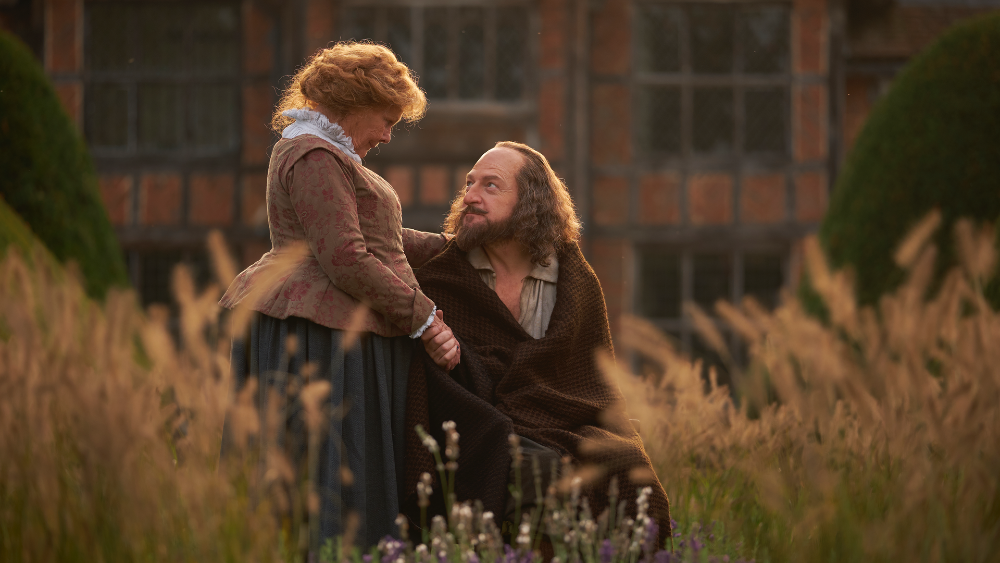
THE BEAT: I didn’t realize there was such an age gap with his wife. Was that something fairly well known as well?
Branagh: Not much, I don’t think. Eight years. They married when she was pregnant, a significant scandal at the time, and they stayed together, and this idea of why and under what circumstances he could come back [to Stratford] was really intriguing to us. To see the fact of what occurred during that time. From the very first incontrovertible fact that Globe Theater burned down on June 28, 1613, and with it, his livelihood, at a point in which suspect he would have also been spent.
[He staged] 37 plays of his own, authored or coauthored, and then the plays of all his contemporaries were also done at the Globe Theater in which he produced, directed, and acted. That was a hell of a life, but he needed to come home, wanted to come home, wanted that coat of arms. He wanted to be called “gentleman” — it mattered to him. He stayed in a marriage where we were very interested to try and solve what the issue, again of a fact, the leaving of the second-best bed. What did that mean? Is that the spiteful act at the end of an unhappy marriage? Or a different kind of response at the end of maybe a marriage that had more love in it than maybe people might think?
THE BEAT: Kathryn Wilder is a revelation in this as his younger daughter Judith, and I didn’t realize she appeared in Orient Express, but you’ve also worked with her on stage?
Branagh: She played Ophelia in Hiddleston’s Hamlet.
THE BEAT: She’s really amazing in the film, so you’ve been able to nurture her and bring her up to the system into having bigger roles.
Branagh: She was in our season at the Garrick Theater at London’s West End. She was in The Winter’s Tale with Judi Dench. That was very important, [though] she played a small part. She understudied Lily James in Romeo and Juliet in the West End when Lily played opposite Richard Madden. She went on for Lily a few times, and so, we’ve had a chance to see her really develop as a young actress and she’s really terrific.
THE BEAT: Hopefully, people seeing this movie will take notice. While you have some great scenes with Dame Judi and Sir Ian, your scenes with her are all fantastic.
Branagh: She’s a standout for sure. We had a screening here in New York with a couple of big directors in, who asked me about her, so I’m happy for her. She’s a great kid, and she’s very talented. She’s very funny as well. She’s got comedy, that girl, which is always handy.
THE BEAT: This has been done for a while obviously, since it was in festivals last year.
Branagh: No, there was a qualifying run in L.A.
THE BEAT: Oh, right, in December? But you never played the festivals?
Branagh: No, so this is really it, but we opened in the U.K. We did very well ther,e I’m pleased to say, so this is the rollout ’round the world, starting this week.
THE BEAT: And you’re also almost done with Artemis Fowl, I presume?
Branagh: Nearly there…
The Beat: Are you going right into filming your next Poirot movie Murder on the Nile then? How has it been balancing these three movies over the course of a year?
Branagh: Yeah, you just have to be super calm, organized, and ahead of the curve. In a way, it helped that Disney now owns Fox. It’s all been in-house for quite some time, so in a sense, there’s a natural dovetailing that occurs. Sometimes with a big visual effects film, there’s quite a bit of time spent for the visual effects to cook. That’s one large factor that means that there are various dormant periods while just some of that real infrastructure goes into the movie. You’re still working on it, but you literally have to wait for complex shots to be developed in order to advance the cut.
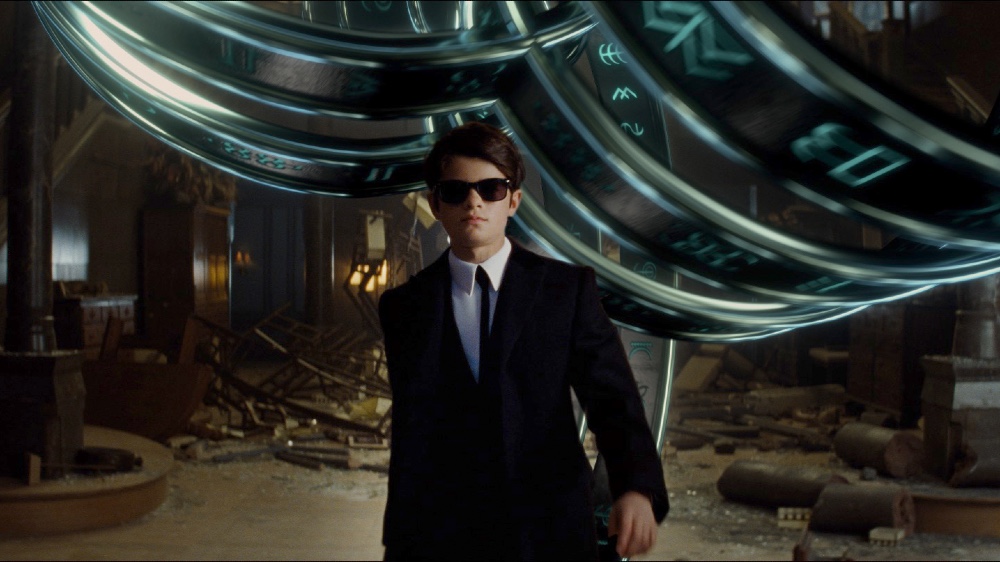
THE BEAT: I know nothing about the book Artemis Fowl. I’ve known about this Artemis Fowl movie being in development at Miramax for almost two decades. I finally watched the trailer, which is pretty amazing. I haven’t read the book but since you chose to adapt it, maybe you can share the appeal of the books that has kept the movie in sights for so long?
Branagh: He’s a fascinating character. A criminal mastermind, who started at 11 years old, and through his father, becomes involved in testing out whether fairies exist. His criminal masterminding becomes incredibly helpful in trying to understand whether this parallel universe can be one to work with or shy away from. It has a great sense of mischief and adventure in it. Irish humor, and you know, basically a coming of age story as well. The boy grows up through it, so there’s a ton of life lessons that can reflected inside that story. But it’s at bottom just a terrifically fun adventure. I’ve enjoyed working on something that is essentially trying to deliver that. Its ambition is to entertain and present the fun of Eoin Colfer’s imagination.
THE BEAT: I’m always impressed that you tend to take on properties that tend to have diehard fanbases with huge expectations, whether it’s Shakespeare or Thor or Cinderella. Do you ever worry about having to answer to so many fans if they don’t like something you do?
Branagh: Yes, it’s what you might call a high-risk strategy. Sometimes, I like to think I’m imaginative about telling stories, but I’m not always imaginative about things like that. I’m glad, because I don’t get too obsessed with… I’ve had plenty of successes and failures in my creative career. I come from a background that just says, “You know what? If you have your health, you’ve got everything.” Them’s the breaks.
The opportunities to do these things are more exciting than the possibility of getting scared about feeling the pressure. I think the internal pressure is always the greatest, when you want it to be the best it can be. I feel I’m very driven to try to make the best of everything that we can. Then really the other parts of your experience you’re protected from, because you have that. If you’ve done your best, you can’t possibly hope to win everyone’s approval or buy good opinions from everyone. I learned a long time ago that’s not something to even worry about, but you do worry about doing the very best you can do. That’s critical.
THE BEAT: Do you feel that this movie is your final say on Shakespeare? Can you finally say “I’ve played the characters. I’ve made the movies. I have now played Shakespeare at the end of his life. I can go do something else with my life now.”
Branagh: That’s interesting. I don’t feel that, but I don’t know. I know that this was important to me. This was a big “thank you” movie. It was a big personal movie. It was a way of acknowledging the kid I was at 17 who hitchhiked to Stratford with a tent on my back, who saw the plays and visited these houses and started to try to put together “Who is the man who was this genius?” In between, he’s given me this incredible life. Not just professional opportunities, but as my wife has said and made me laugh, “People think you just go to bed and read Shakespeare for pleasure, but I can confirm, you go to bed and read Shakespeare for pleasure.” I have done, and I do.
I used to think that I don’t really have religion, but I do have Shakespeare. That’s a vast philosophical and moral council. He does hold the mirror up to the nation, to nature, and he does remind you what it’s like to be human. Harold Bloom wrote the amazing book Shakespeare: The Invention of the Human. He gives structure, he gives architecture to what the human condition is… in the grand and in the grubby.
All Is True opens in New York and L.A. on Friday, May 10, and will probably expand to other cities over the rest of the month.



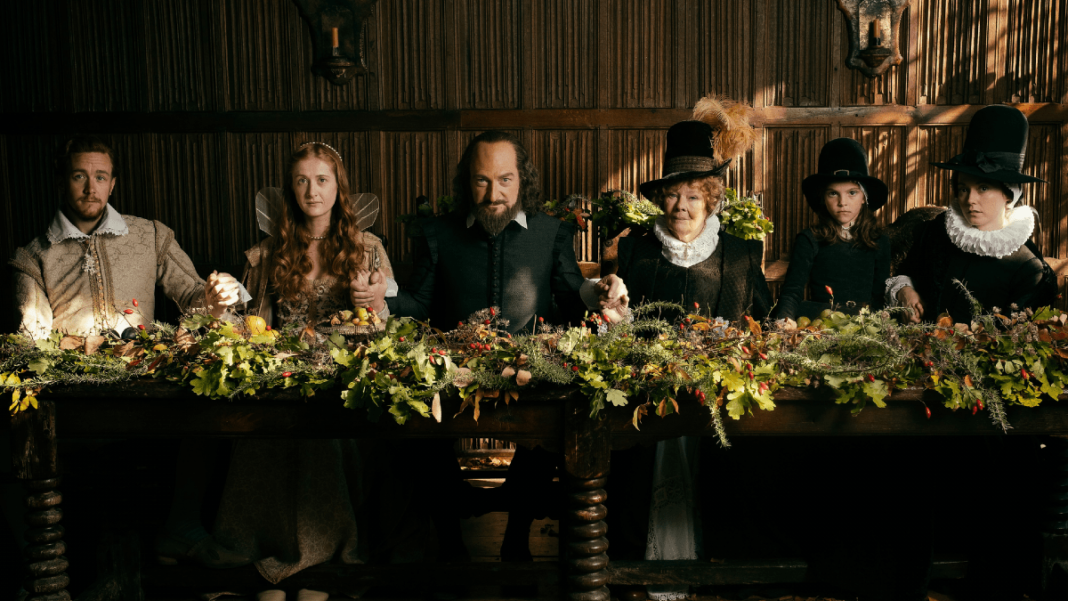
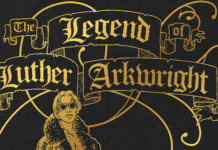

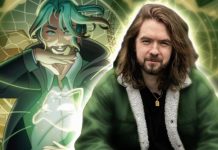






Minor factual quibble: Branagh has directed five adaptations of Shakespeare for the screen
-Henry V (1989)
-Much Ado About Nothing (1993)
-Hamlet (1996)
-Love’s Labor’s Lost (2000)
-As You Like It (2006)
That’s not counting the production of Macbeth that was broadcast for National Theater Live.
Also, the Orient Express follow up is Death on the Nile, not Murder on the Nile.
Comments are closed.